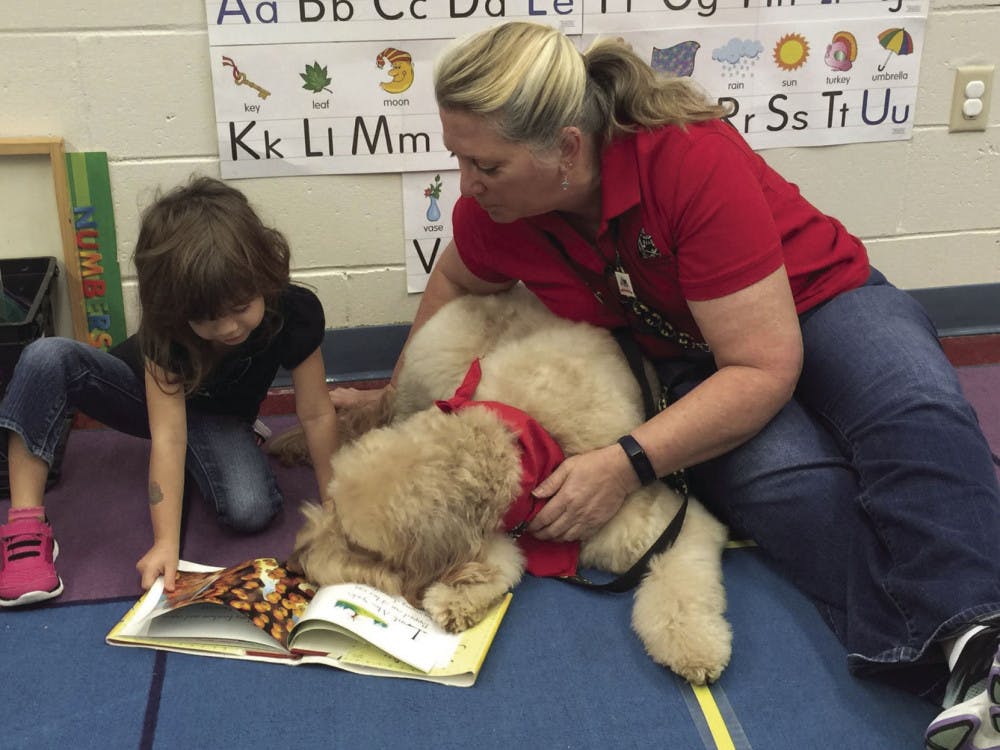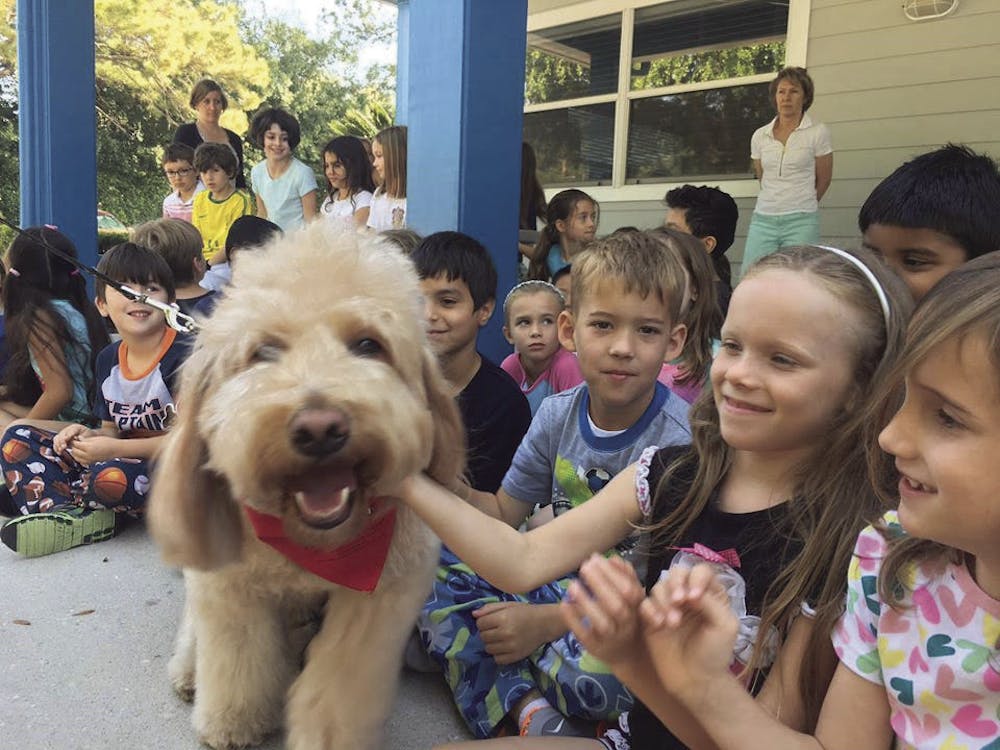One hundred children from Gainesville, ages 7 to 12, participated in a study published this month that measured children’s saliva for cortisol — a stress-sensitive hormone — before and after stressful activities.
“We took a commonly held belief and put it to a very rigorous test,” said Darlene Kertes, an assistant professor in UF’s psychology department. “Public speaking and mental math are known stressors for both children and adults.They are known to mimic stressors in real life.”

Terry Biehl, Beau’s handler, said she can see a calmness on children’s faces when they pet him.
The kids were divided into three groups to perform a stressful act. One group had no social support, another had a parent present and the third group had the family dog on the sidelines. When kids enter the middle part of their childhood, they begin interacting with social support figures other than their parents, said Kertes, the lead investigator.
“A lot of kids talk about having strong emotional ties to their pets,” she said. “It seemed like a natural question to ask if pets can provide social support to children.”
The kids who interacted with their dogs during the activity not only said they were less stressed, but their saliva proved it.
“Other studies have looked into therapy dogs at hospitals and on university campuses before exams, and there are correlations between dogs and reduced stress,” Kertes said.
She said she chose a pet dog as opposed to an unfamiliar dog for the study because the child would have already formed an emotional bond with the animal, causing them to be calmer.
“There’s a natural human-animal bond,” said Terry Biehl, a therapy dog handler in Gainesville.
She handles Beau, a goldendoodle registered with the Alliance of Therapy Dogs. He volunteers at UF Health Shands Hospital and William S. Talbot Elementary school.
At Talbot, he visits special needs students, one of whom spoke for the first time to say “Beau.”
“People gravitate toward Beau,” Biehl said. “It’s one of the reasons I got into therapy work.”
She said she can see a calmness on children’s faces when they pet Beau.
Kertes said stress can impact children’s emotional well-being, social relationships, their ability to handle professional responsibility and can cause a large number of stress-related disorders, like anxiety, cancer and cardiovascular disease.
“How kids learn to cope with stress impacts how they cope with stress for the rest of their lives,” she said.
Beau, a goldendoodle registered with the Alliance of Therapy Dogs, volunteers at UF Health Shands Hospital and at William S. Talbot Elementary School to help children.






